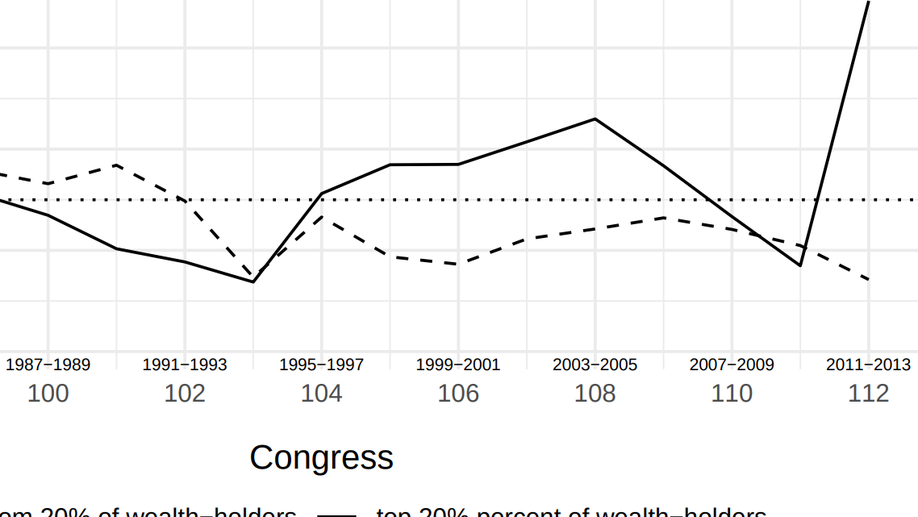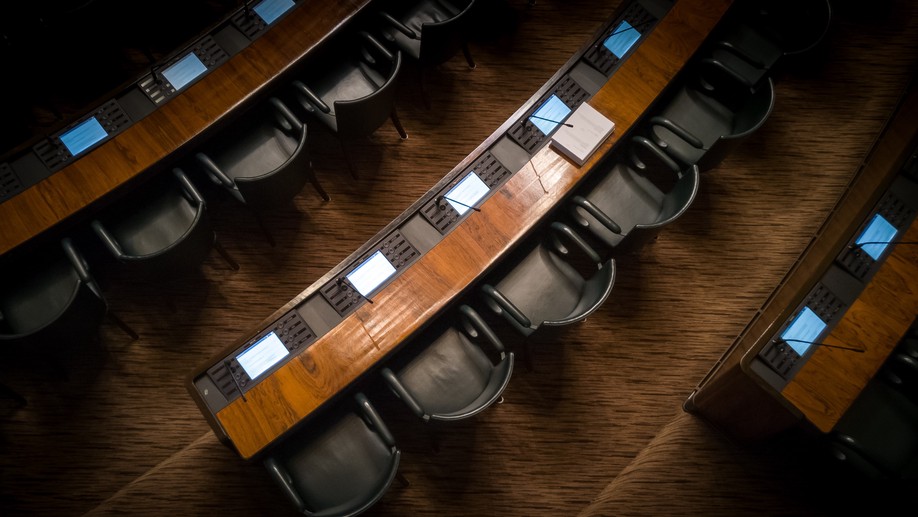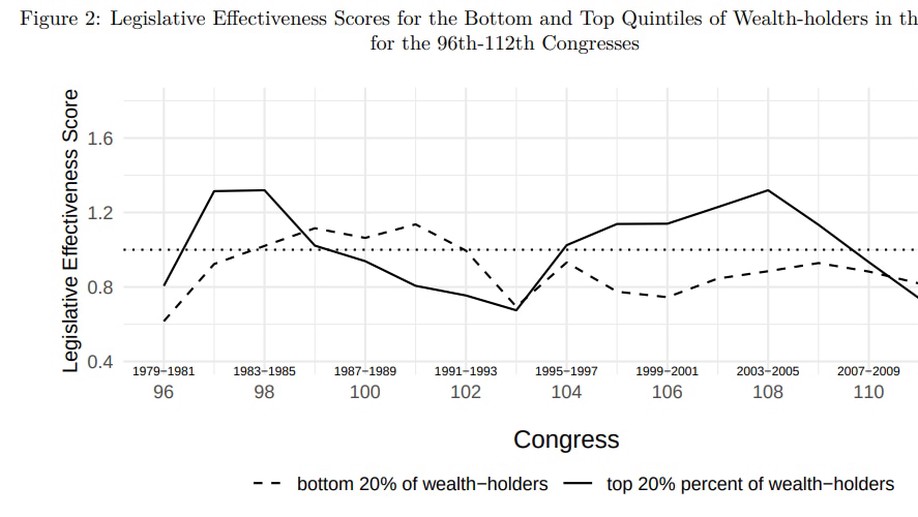
Wealth and Policymaking in the U.S. House of Representatives
Do members of Congress with more and less wealth approach policymaking differently, or succeed at different rates? Past research holds that members are typically much wealthier than the average citizen, and wealth is not associated with policymaking power. In this paper, I use data on the personal wealth and legislative effectiveness of representatives betweeen 1980-2014 to explore whether wealthier legislators are more or less successful at advancing their agenda items through the legislative process than their less-wealthy peers. My analysis reveals that the wealthiest quintile of legislators are significantly more successful in advancing their policy agendas than the remaining 80% of representatives in nearly all Congresses examined. Meanwhile, the least-wealthiest quintile of legislators are significantly less successful in advancing their policy agendas than their wealthier peers. I also find that wealthy lawmakers do not necessarily enter Congress with more experience working within a legislature, nor are they innately more effective in advancing their legislative agendas. Instead, their increased effectiveness develops over time and is strongly related to specific institutional arrangements, such as congressional committees and majority parties. My findings suggest that wealthy representatives hold outsized policymaking influence at the expense of less-wealthy members, and they provide insights into how the historical overrepresentation of the highest economic strata in government continues to shape political inequality in contemporary congresses.

Try to See it My Way: The Process and Perils of 'Coming Around'
Can a career civil servant (bureaucrat) achieve long-term policy congruence via strategic reporting to a political appointee who oversees her agency and sets policy? This paper develops a model that explores when bureaucrats will misreport information relevant to an appointee’s short-term decision making in order to influence the appointee’s belief formation and, thereby, long-term policy setting. We find that when a bureaucrat’s short-term and long-term policy goals do not conflict too greatly, she will prefer to provide a truthful report to the appointee – who, in turn, is willing to accept the report as truthful (particularly as it pertains to short-term policy responses). When a bureaucrat’s long-term and short-term goals are in conflict, however, she has an incentive to engage in deception in which she reports misinformation to her political appointee in order to influence belief formation. Favorable conditions for this deception to take place include divergent policy preferences between the bureaucrat and the appointee, low likelihood of short-term decisions being necessary, and bureaucratic desire for long-term policy congruence from the appointee.

The Importance of Committee Assignments for Legislative Effectiveness
How crucial is a lawmaker’s committee assignment for the advancement of her proposed bills through the legislative process? We leverage incidents of committee exile, meaning the involuntary removal from a committee by a committee member after her party suffers significant electoral losses, to explore whether legislators are more or less successful at advancing their agenda items, depending on the committees on which they serve. Our analysis reveals that exiled lawmakers are significantly less successful at advancing their policy agendas in subsequent Congresses than their closest non-exiled co-partisans, effects that slowly fade over succeeding Congresses. Moreover, those exiled from specific committees perform much worse on the issue areas that serve as the focus of those committees. Hence, it appears that being exiled from a committee can have lasting consequences for a legislator’s trajectory as an effective lawmaker and the issue areas on which she experiences the greatest success. More broadly considered, our findings suggest that a legislator’s committee assignments do indeed have a profound influence over her effectiveness as a lawmaker.

Wealth and Policymaking in the U.S. House of Representatives
Do members of Congress with more and less wealth approach policymaking differently, or succeed at different rates? Past research holds that members are typically much wealthier than the average citizen, and wealth is not associated with policymaking power. In this paper, I use data on the personal wealth and legislative effectiveness of representatives betweeen 1980-2014 to explore whether wealthier legislators are more or less successful at advancing their agenda items through the legislative process than their less-wealthy peers. My analysis reveals that the wealthiest quintile of legislators are significantly more successful in advancing their policy agendas than the remaining 80% of representatives in nearly all Congresses examined. Meanwhile, the least-wealthiest quintile of legislators are significantly less successful in advancing their policy agendas than their wealthier peers. I also find that wealthy lawmakers do not necessarily enter Congress with more experience working within a legislature, nor are they innately more effective in advancing their legislative agendas. Instead, their increased effectiveness develops over time and is strongly related to specific institutional arrangements, such as congressional committees and majority parties. My findings suggest that wealthy representatives hold outsized policymaking influence at the expense of less-wealthy members, and they provide insights into how the historical overrepresentation of the highest economic strata in government continues to shape political inequality in contemporary congresses.